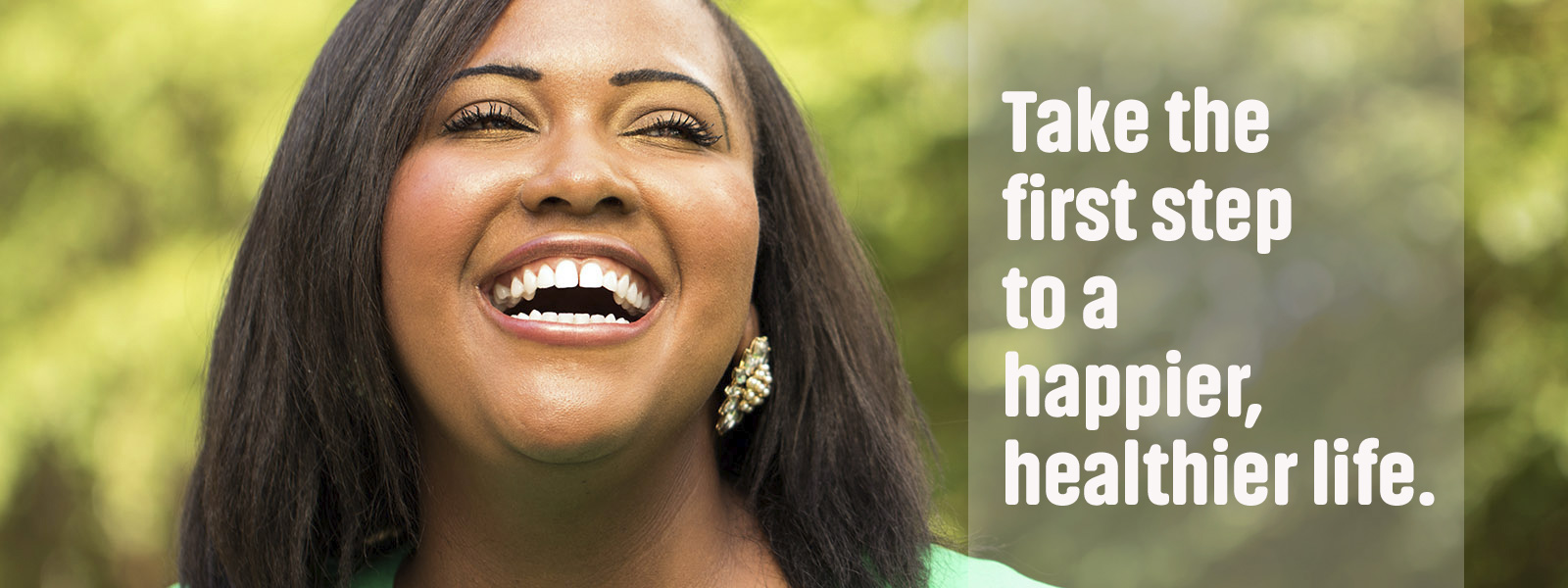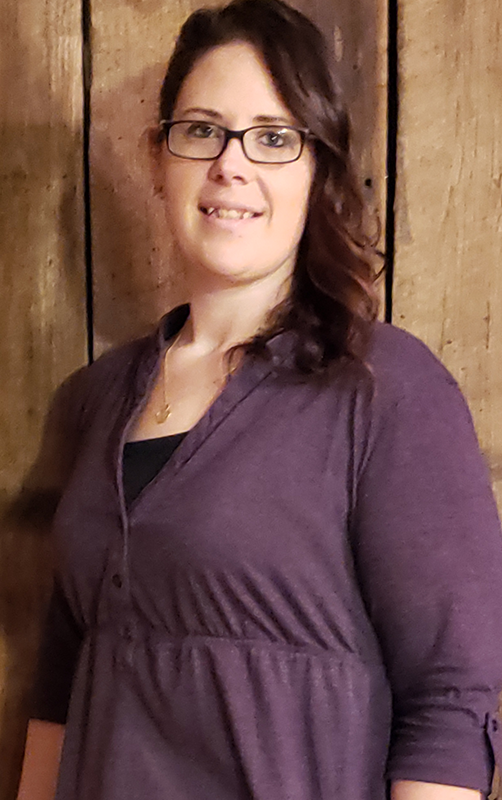
There are many types of weight-loss surgery, known collectively as bariatric surgery. Bariatric surgical procedures make changes to your digestive system to help you lose weight by limiting how much you can eat or by reducing the absorption of nutrients, or both. Consider gastric bypass or other weight-loss surgeries if diet and exercise haven’t worked for you in the past or if you are having serious health problems because of your weight.
If this sounds like you, turn to the board-certified bariatric surgeons at Pardee Bariatrics and General Surgery for complete, surgical weight-loss care. From your first visit to lifelong follow-up services, you’ll have an expert team guiding you every step of the way. Trust the guidance of our surgeon, who performs hundreds of bariatric surgeries annually and has the experience to recommend the best procedure for you.
Enter your height and weight in the calculator and look at your Body Mass Index (BMI). You may qualify for weight-loss surgery if you have:
Body mass index (BMI) of 35–39.9, with a history of obesity-related conditions such as high blood pressure, Type 2 diabetes or sleep apnea
BMI of at least 40, regardless of any history of obesity-related diseases
As part of our surgical preparation process, you’ll meet one-on-one with a bariatric surgeon to discuss your goals, health and treatment options. Trust the guidance of our surgeons, Dr. Christopher Edwards and Dr. Rebecca Rice, who have the experience to recommend the best procedure for you. Most weight loss surgeries today are performed using minimally invasive techniques (laparoscopic surgery) and all of our bariatric procedures will make your stomach smaller so you’ll feel full after eating less food. Consider one of these types of surgery:
Gastric bypass divides your stomach into a small pouch and a larger portion, and connects your small intestine directly to the pouch. One type of gastric bypass surgery is a Roux-En-Y gastric bypass.
The duodenal switch, also called biliopancreatic diversion, is a complex procedure that combines the vertical sleeve gastrectomy and gastric bypass procedures. To do this, the surgeon removes about 80 percent of your stomach, just as in sleeve gastrectomy, but adds a second component where the stomach is connected directly to the last part of the small intestine.
Gastric sleeve (Vertical Sleeve Gastrectomy) removes about 80 percent of your stomach making your stomach into a slender tube reducing the amount of food you can eat.
Begin your journey by watching a video seminar for an overview of the bariatric surgery process, treatment options and expected results.
Partner with Pardee Bariatrics and General Surgery for support that helps you recover successfully after weight-loss surgery. Attend all of your postoperative check-ups to maintain your progress and check on your health. These check-ups will be scheduled frequently the first year after surgery and then yearly thereafter. We are committed to lifelong care at Pardee Bariatrics and General Surgery and are here to answer any questions you may have throughout your recovery period.
First Few Days – You’ll likely return home on the first or second day after bariatric surgery. Follow some additional guidelines to maximize your healing: Walk around your hospital room to stimulate circulation in your legs, practice deep breathing exercises to increase your oxygen intake, and don’t be alarmed if your bowel movements are unusual or irregular at first. Constipation or diarrhea are common side effects following surgery. Follow your surgeon’s guidelines on how to treat these at home and pick up any additional medications your surgeon recommends.
Activities to Avoid After Weight-Loss Surgery – You can return to most normal activities within a few months of weight-loss surgery but for the first two weeks after surgery, refrain from driving, tub bathing, returning to work, and sexual activity.
Body Changes to Expect – Most of the body changes you experience after bariatric surgery will decrease or pass altogether after a few days or months.
Measuring and Continuing Success – Expect to lose weight most quickly during the first year after bariatric surgery. Eventually, you’ll likely regain 5–10 percent of the weight you lost. Keeping your scheduled appointments after surgery is key to lifelong success. You can also review our patient guidebook for specific instructions on how to handle the post-surgery time period. Sign up for classes for tips on improving your health before and after surgery and achieving the best outcome of treatment.
Weight loss can be a challenging journey, and understanding the available options is essential. There has been a lot of conversation in the mainstream media about weight loss drugs like Ozempic and how it can be a “quick-fix” option to help you drop those extra pounds. While semaglutide medications like Ozempic are an effective weight loss option, there’s much more to consider when you are deciding to make a lifestyle change.
Choosing between a semaglutide medication and bariatric surgery depends on the patient’s medical history, weight loss goals, and commitment to lifestyle changes. Both options are effective tools but need careful consideration and consultation with a healthcare provider. Read more from Dr. Rice on the Healthy With Pardee blog.
Copyright 2023 UNC Health Pardee. All rights reserved. | Privacy policy | Disclaimer | Non discrimination notice

Like many others, I have done pretty much every diet out there. I have lost the same 50 pounds time and time again and am always left feeling frustrated. I decided after weighing in at 233 lbs with 2 children who need me and being 43 years old it was time to pursue extra help. I attended one of the bariatric seminars with Dr. Edwards after hearing great things about him and his staff. Everything I had heard ended up being true and then some.
Is this the easy way out? No, not at all. There is work involved. You must make changes to eliminate sugar and caffeine initially as well as reduce portion sizes. Overall health is important so incorporating an exercise routine is also highly encouraged. The online and in-person support groups, resources, tools, and consistent follow-up kept me motivated. They 100% cared about me, my progress and wanted me to succeed, which impacted my positive experience. It has been incredible and an experience that has changed my life forever. I feel like for the first time in my life, I am confident that I will achieve my weight loss goals.
Since surgery on Feb 27, 2020, I have lost a total of 70 lbs and have 30 more to go before I reach my goal weight of 130 lbs. I have Dr. Edwards and his staff to thank for changing my life!
-Stacey K., Pardee Bariatric and Weight Loss patient

I have always battled obesity, but in spite of it, I have always been a very active person, holding down two jobs as a beautician and also an EMT. After I was diagnosed with High Blood Pressure at the age of 17, my weight began to climb. From then on, my body and my blood pressure medications began to fight against one another. Very quickly, five pounds turned into ten, and the next thing I knew I had gained 130 pounds. Looking back now, I know that while I gained the weight quickly, it did not happen overnight, and I could have done more to keep myself from gaining the weight as fast as I did.
In January of 2017, I was hospitalized due to stroke level blood pressure coupled with chest pain, something that no 27 year old should have to experience. Referred to a cardiologist, over the course of the next year we tried everything from diets, exercise, numerous tests and medication. After a year of failed attempts to improve my health, my cardiologist looked at me and said he was referring me to the bariatric surgeon. I broke down. My health and my body had lead me to defeat, we had tried everything, and I wanted to get healthy on my own.
I attended Dr. Edwards’s orientation on April 14th, and it was the wake up call I needed. I really needed their help, and before I left that night, I had filled out my paperwork and turned it in to begin my weight journey. A few short weeks later, they called to set up my first appointment to discuss my options. My insurance said they would cover my surgery after a 12-month program.
However, my blood pressure was never below 200/100 every time I went to the doctor despite the various medications I was taking. Dr. Edwards and his staff pulled all of my health records from all my other doctors and sent them to my insurance company so that they could get me qualified under medical necessity. My 12-month program turned into 3 months so quickly, and I remember getting the call that my insurance had approved the surgery for July 26. Little did I know that July 26th would not only be the first day to a new healthier me, but the best day of my life.
Having weight loss surgery has not been an easy journey. Most people will tell you that you are taking the easy way out because of how quickly you drop the weight. In all honesty, it is hard. Having to retrain your mind and body on how you eat how you drink is not easy. Having to avoid greasy fatty food is not easy. Having to avoid cravings for sweets is not easy. Yes, I still want to eat a whole pizza or have a big juicy cheeseburger, but I tell myself it is not worth it.
Having bypass surgery has not only changed my life for the better, but has saved my life. I am now 6 months out from surgery, down 122 pounds that will be forever gone, and I am on two medications plus my vitamins. I am in a better place now then I have been in over 10 years. Dr. Edwards and his team have saved my life and I would do it again tomorrow it I knew it would keep me in health that I am now.